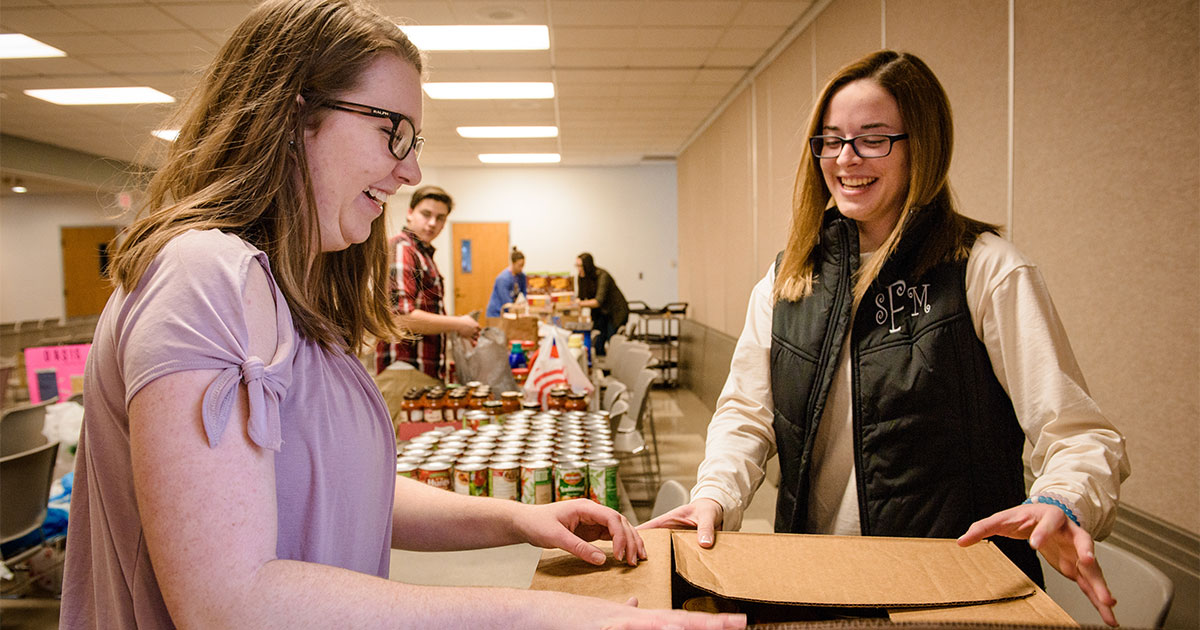
“Why don’t more people volunteer?”
You may have heard this question in a board meeting or voters’ assembly at your congregation. You may have even asked it yourself.
It seems that the handful of people willing to step up and do what needs to be done is becoming fewer and fewer.
Where are the new people? Why aren’t people responding to our appeals for more volunteers?
Congregations aren’t the only organizations struggling with declining numbers of volunteers.
The Bureau of Labor Statistics of the U.S. Department of Labor reports that volunteer engagement in the United States is on a steady decline. (If you’re so inclined, you can read their statistics in this news release.)
It’s a challenging situation. We have fewer volunteers to carry out the mission of the Church at a time when that mission is becoming larger and more difficult.
What can we do? How do we get more people engaged in the work of our congregation?
We can start by recognizing that the Lord has provided all that we need for the work that He has called us to do.
God is a good giver. He provides the resources — including the people — we need to carry out His mission in our congregations and communities.
The question isn’t if we have the people to do the work that God has given us.
The question is how we are going about equipping, encouraging, and enabling the people He has given us to serve in His mission.
“Members of One Body” — the upcoming re:Vitality module — addresses the challenge of involving people in the mission and ministry of the congregation by discussing the stages of involvement as “Join, Belong, Prosper.”
Helping people become active in the work of the congregation begins with understanding these stages and intentionally engaging people according to their specific stage.
‘Join’
“Join” is the stage that follows becoming a member of the congregation. New members may have their names on the roster, but they haven’t embraced or experienced the congregation as their community.
Focus on asking people in this stage to volunteer for activities that will help them become part of the community of your congregation.
‘Belong’
In the “Belong” stage, members feel that they are part of the community, but they don’t feel as though they have a place in making decisions or having a significant role in the congregation.
From their perspective, they are no longer outsiders but they aren’t insiders either.
Asking people in this stage to volunteer for roles that have some authority and responsibility is a good way to involve them and build their sense of belonging.
‘Prosper’
The “Prosper” stage is where we find people willing to step up to challenging roles in the congregation.
They are aware of their gifts and abilities. They understand the needs of the congregation and how their work fits into the mission of the Church. They are comfortable and confident as a part of the family that makes up the congregation.
Some people naturally progress to the “Prosper” stage, but most people need some guidance to get there.
Helping people identify their gifts, guiding people to roles for which they are gifted, and providing training and support are important ways to guide people to prospering as members of the congregation.
‘Members of One Body’
“Members of One Body” will provide resources to assist congregations with helping people “Join, Belong, Prosper” in the body of Christ.
You can practice the main idea of “Members of One Body” now by considering which stage people are in when you approach them about serving.
Also, remember that the Lord has always and will continue to provide all that we need — including volunteers — to do the work that He has called us to do.
The Lutheran Church—Missouri Synod celebrates our treasured volunteers during National Volunteer Month in April 2019.
Get updates on new module
Guiding people into active service in the congregation is the focus of the upcoming re:Vitality module “Members of One Body.”
The module is in development, and it is expected to be available by the end of 2019.
Connect with the LCMS online or by email for re:Vitality updates, including the availability of “Members of One Body.“